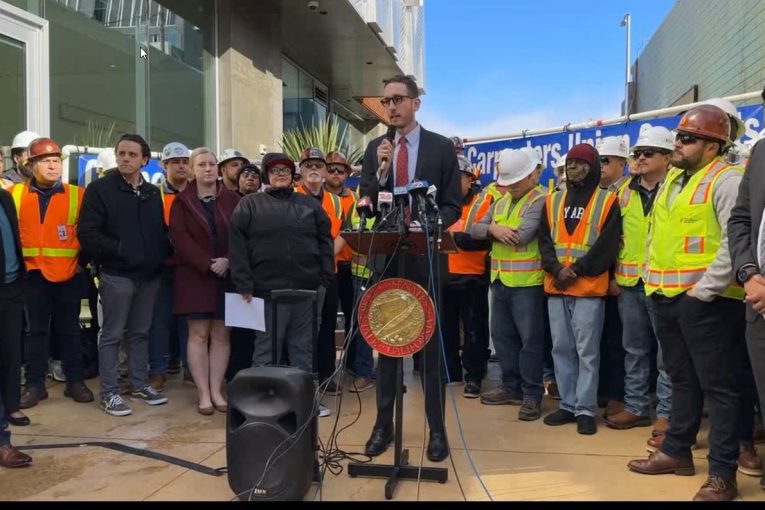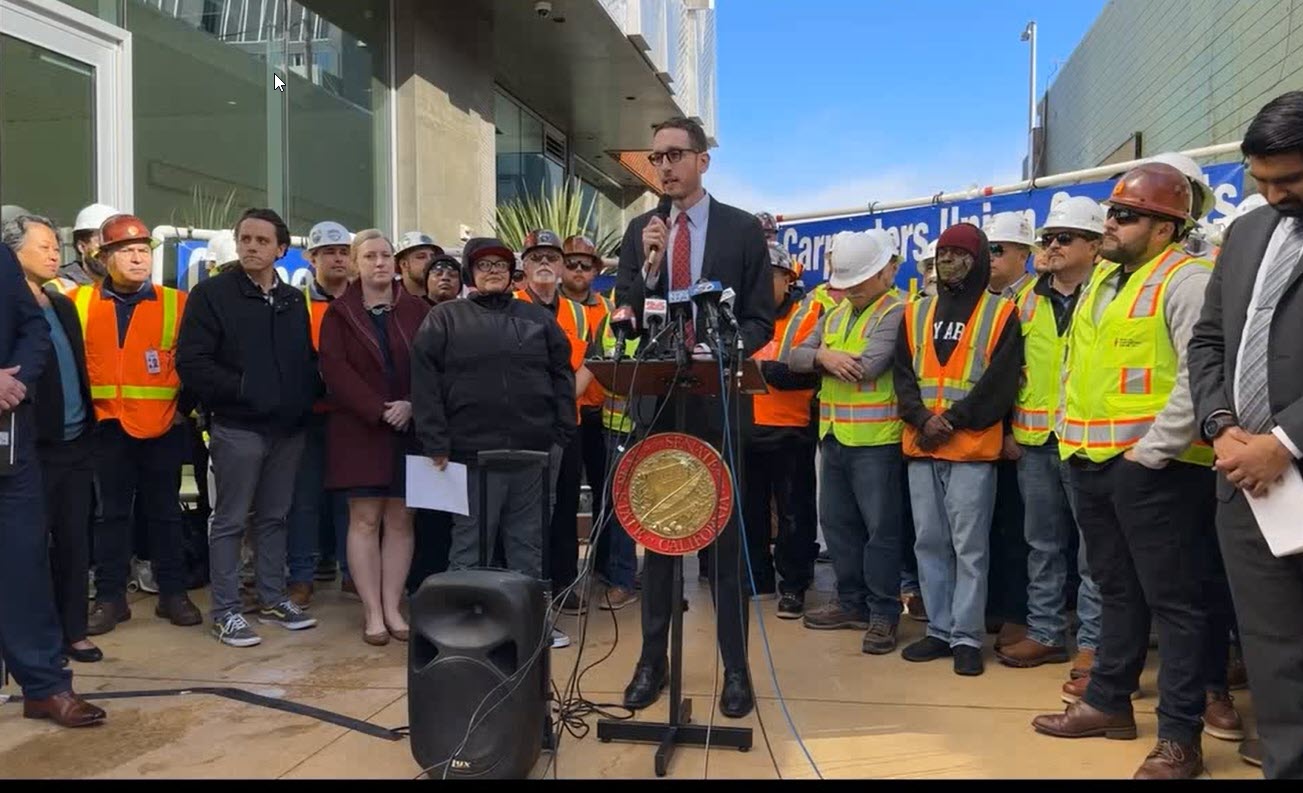

Special to the Vanguard
Sacramento, CA – The Assembly Natural Resources Committee passed Senator Scott Wiener’s (D-San Francisco) Senate Bills 4 and 423. These measures will help significantly increase affordable housing production across California by extending and strengthening landmark streamlining provisions and allowing affordable housing to be built by right on land owned by faith institutions and nonprofit colleges. Both bills are now heading to the Assembly Appropriations Committee.
“After decades of delay, Californians are rising up to protect and expand our most powerful tools to build affordable homes,” said Senator Wiener. “SB 4 and SB 423 both apply only to urban areas, where development is critical to our climate and environmental protection goals – increasing density reduces vehicle emissions and sprawl. I’m humbled by the powerful coalition that came together to push for strong tools to tackle our housing crisis, and I look forward to continued engagement throughout the summer to continue making improvements to the bills.”
SB 423
SB 423 extends the provisions of SB 35 (2017), one of the state’s most successful tools for accelerating development of affordable housing. The bill passed the Assembly Natural Resources Committee 7-0 with bipartisan support and heads next to the Assembly Appropriations Committee.
SB 35’s streamlined approvals have proved to be enormously successful at increasing affordable housing production in communities failing to keep pace with their housing goals—helping develop over 18,000 units of affordable housing and tens of thousands of high-wage jobs in the four years since it went into effect.
With the law sunsetting at the end of 2025, Sen. Wiener’s new bill, SB 423, would extend its provisions—and add strong new labor standards signed into law last year by Governor Newsom in AB 2011 that will  ensure it continues to produce both affordable housing and stable, high-wage jobs for California workers.
ensure it continues to produce both affordable housing and stable, high-wage jobs for California workers.
To ensure the protection of precious coastal resources and to mitigate wildfire risk, SB 423 has been amended to include a 1 year delay in implementation, an exemption for geographic appellate jurisdiction, an exemption for lands an objective projection from NOAA, OCP, or another group shows to be affected by 3 feet of sea level rise, and a commitment to consult with state agencies and stakeholders on wildfire risk management strategies. The bill will apply within the coastal zone in areas that have a local coastal program (LCP) or land use plan (LUP). These amendments extend streamlined housing approvals to urban zones critical to meeting our state’s housing goals, while building on SB 35’s existing protections.
The Affordable Housing on Faith Lands Act (SB 4)
Researchers from UC Berkeley’s Terner Center have found that about 38,800 acres of religious land across California are suitable for housing development–an area roughly the size of Stockton. While many faith institutions want to develop their land into housing, they often encounter difficult zoning challenges and projects are frequently subject to arbitrary approval decisions. SB 4 would allow faith institutions and nonprofit colleges to build affordable housing by right, using a ministerial approval process that approves projects satisfying objective planning standards.
SB 4 ensures that churches, faith institutions, and nonprofit colleges will be able to build affordable housing on their land without having to go through an expensive and difficult rezoning and discretionary approval process. It passed the Assembly Natural Resources Committee 8-2 with bipartisan support and will soon be heard before the Assembly for a final vote.
Any organization building this type of streamlined affordable housing must maintain the affordability of these homes for a minimum of 55 years for rental properties and 45 years for properties that can be owned. Additionally, density and height requirements are tied to what is deemed appropriate for affordable housing by housing element law.
To address concerns about the bill’s impact on environmental justice communities, SB 4 was amended to include a sunset in 2036, a requirement that buildings include Merv air filters on properties within 500 feet of a freeway, and a series of setbacks around industrial uses that vary based on the severity of the associated health risks. It also includes a 3200 foot setback from active oil and gas wells in line with protections passed by the Legislature last year.
